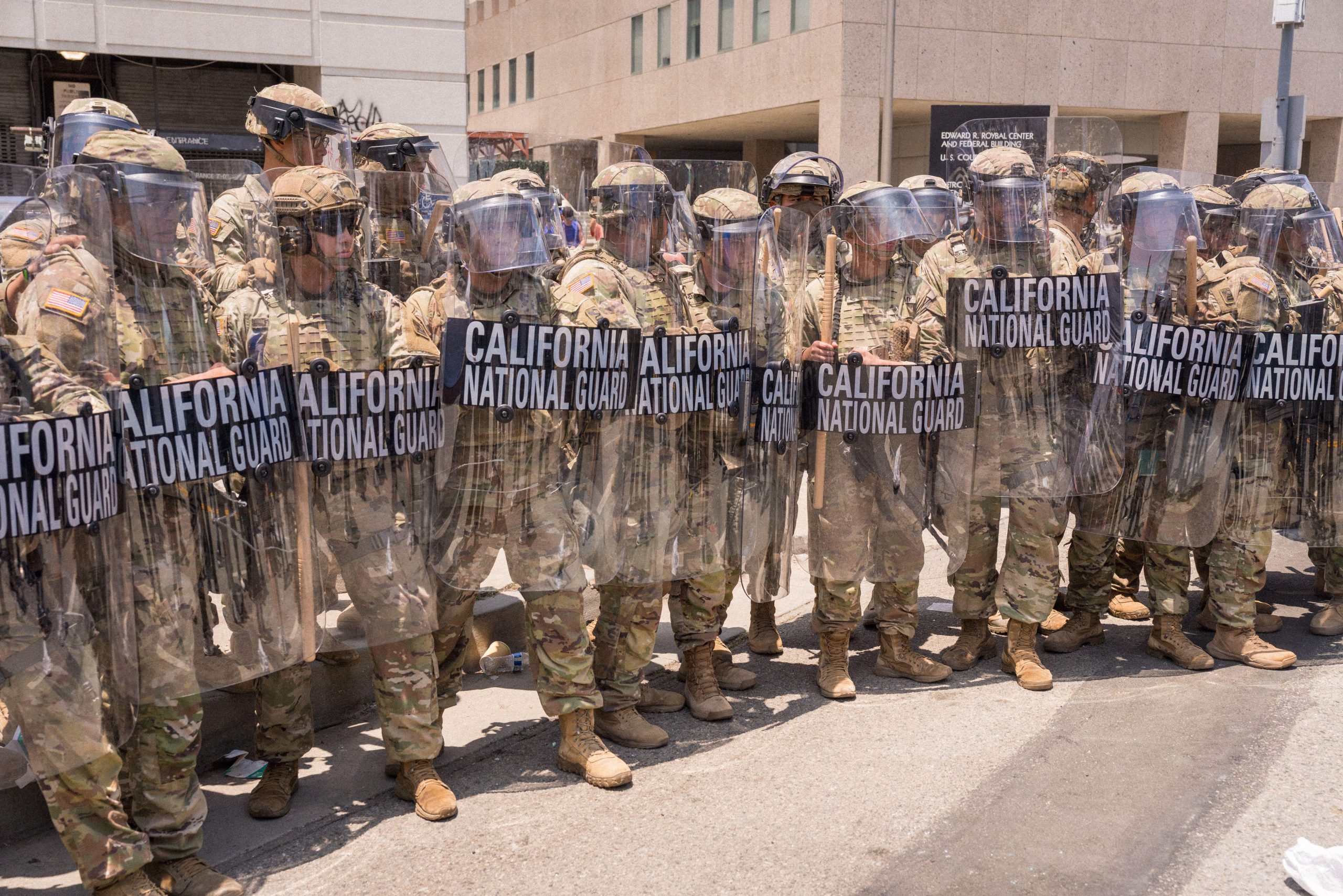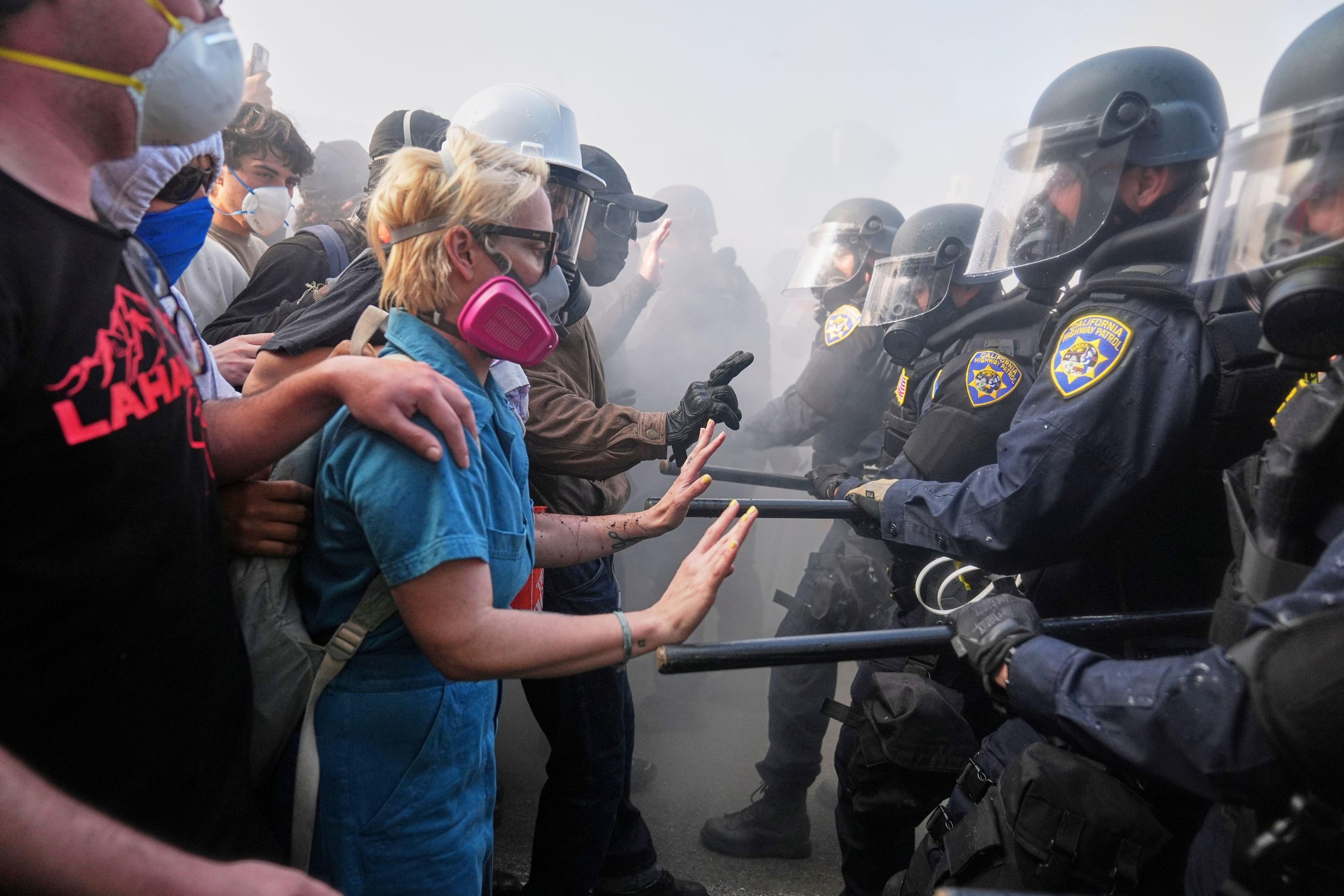Freedom of expression groups joined forces this month to investigate the obstacles facing independent media in Alaksandr Lukashenka’s Belarus; censorship made possible by the combination of a number of blunt-edged tools in a deceptively sophisticated system of media control.
Rohan Jayasekera (second left) comments from Minsk.
Let’s start with a tale of two Belarusian editors, both effective and professional journalists, both working different ends of an uneven playing field. Predictably enough, only one benefits.
The unlucky one is Ales Lipay, chief of the independent Belapan news agency. His uphill struggle is both political and economic. Founded 18 years ago, the well regarded service exists mainly online today. It produces news in Belarusian, Russian and English, including 170 online video items last month.
The global meltdown hit hard as foreign investors cut back on their Belarus interests and their Belapan subscriptions to match. At the same time Lipay and his 50-strong team must negotiate a morass of petty state-inspired obstacles to their reporting.
His reporters are routinely denied accreditation to cover official events. Even the ministry of agriculture refused them on the grounds that a single reporter from the state news agency gave them all the coverage they needed, thank you.
No Belapan photographer or cameraman, Lipay says, has been given accreditation by a government agency since 1994. Even the most routine requests for information are directed to old-style “Ideological Departments” — the Soviet-style system instituted a few years ago by the government to institutionalise state control over every corner of daily life. They generally say no.
At the top end of the pitch looking down on Lipay is Uladzmir Andryvich, chief editor of the daily Narodnaya Gazeta (People’s Paper). His economic problems are solved for him. The paper is published by a “closed shareholding” company that is 75 per cent owned by the Belarus Ministry of Information with the balance owned by selected staff. Any cash shortfall is covered by the taxpayer.
He disputes the word independent (and state-owned). “Independent from whom?” he says. “From what?” His paper is guided by an editorial board of four staff and one official from the ministry of information.
“I am not told by anyone what or what not to publish,” he says, bridling at the idea that we think of him as some kind of apparatchik. He considers himself a professional making the best of a difficult hand. People wouldn’t buy the People’s Paper if it wasn’t worth it, he says.
Circulation has risen from 21,000 four years ago to 32,000, about 27,000 of which is distributed via the state-run Belposhta subscription-by-mail service and the rest sold through the Belsayuzdruk network that supplies papers to tens of thousands of state-owned street kiosks around the country.
State control of the means of distribution is a major bone of contention. In the run up to the 2006 presidential elections, more than 20 newspapers were cut off from one or both distribution networks. Their circulation plunged and several went bust or became rump publications online.
The influential Natalia Petkevich, President Aleksandr Lukashenka’s first deputy head of administration, maintains that it is just business between papers and distributors and that the state has nothing to do with the problem.
But Index on Censorship, part of a delegation to Minsk led by the International Federation of Journalists (IFJ) and representing 14 groups in total, collected pages of evidence of the non-state papers’ stymied efforts to get sold outside the capital. Requests refused, ignored or simply referred to the ubiquitous ideological departments in Piatkevich’s care, which use their completely unregulated and unrestricted powers to veto anything they don’t like.
In the past year there has been a re-energising of the west’s interest in Belarusian free speech, initially inspired by the Organisation of Security & Cooperation in Europe (OSCE) and more recently by the European Union’s multi-layered dialogue with Belarus led by Sweden, the current holder of the rotating presidency of the EU.
With the next presidential election due in early 2011, the EU is keen to ensure that the state and non-state media alike get a fair chance to cover and comment on it. In response to stiff criticism from the Swedes, the government allowed two of the highest profile victims of the distribution ban back into the system, the daily Narodnaya Volia and the famous Belarusian language weekly Nasha Niva.
This is cold comfort for those left off the list, such as Aleksander Starykevich of the daily Salidarnasc, broken by the Belposhta and Belsayuzdruk bans. He says the OSCE and EU dialogues play to Lukashenka’s agenda and that token concessions to two papers do not begin to address denial of free expression in Belarus.
He dryly — and accurately — predicts the line government officials will spin to Index on Censorsip and others on the mission: That the state needs time but is making every effort; that there is progress with the non-state media; that the matter is being addressed at the highest level; that Lukashenka cannot be pushed too far by foreign powers.
The officials produce masses of facts and figures about their extensive support for safely non-political non-state publications — and why it is uneconomical to distribute newspapers with small circulations. (Even though their refusal to do so was the reason why their circulations were small in the first place.)
More token concessions are on the way. Petkevich indicates support for privatisation of the state media, as do officials at the ministry of information when asked. They appear confident that they can manage it and protect their political interests without opening the door to foreign control of the country’s mainstream media. Carefully avoiding naming Russia, Petkevich hints darkly at the threat from “oligarchs”.
And while they say their negotiations with the International Telecommunications Union will allow the issuance of new broadcasting licenses and frequencies, the process will be open to political abuse without for fair legislation and a fully independent regulator to govern allocations.
The present licensing system is already loaded against independents. Pioneering station boss Yury Bazan of non-state AutoRadio relates years of random obstruction from Ministry of Communications officials since first he first tried to get on air in 1992. Lipay also tried and failed to get a broadcast licence. (He discusses the experience here).
The IFJ led mission to Minsk with Index on Censorship’s participation last week came up with a number of recommendations. The interim declaration, signed by the 14 media rights and free expression groups, is here.
The groups will follow up with a detailed report to the Swedish presidency of the EU, a contribution to the ongoing EU-Belarus Human Rights Dialogue, the diplomatic initiative that the Swedes have worked so hard on during their six-month presidency.
On the legal front, a new and highly restrictive media law, recent legislation covering “counteraction to extremism”, longer standing articles in the country’s criminal code prohibiting insults against the president or his representatives, and a series of administrative decrees covering access to state information, add up to a potentially overwhelming package of legal restraints on the media.
Zhanna Litvina, who chairs the independent Belarus Association of Journalists (BAJ), says the new media law and the rest of the package must be reformed to bring them all into line with international press freedom and freedom of expression standards.
So far this weapon of mass repression has not been used, though Lukashenka makes it clear he will if he needs to. “The mass media have the most destructive weapon in their hands, and they have to be controlled by the state,” Lukashenka told journalism students in February last year.
Stockholm’s EU presidency expires at the end of this year. Index on Censorship waits to see if Spain and Belgium, the two EU states that will hold the presidency in the year running up to the next Belarusian presidential elections will be as diligent as the Swedes have been.
There has been a change of tone at the OSCE to go with the handover of its own rotating presidency to Kazakhstan this year. The OSCE brokered some landmark meetings on media between the different sides over the last 12 months under the keen eye of the outgoing head of the OSCE’s Minsk office, Hans-Jochen Schmidt.
The organisation’s new deputy mission head in Minsk, Zhandos Asanov, voices much less enthusiasm about creating a ‘level playing field’ for all Belarus media, state and non-state alike.
Worryingly for the future of an effective campaign for change in Belarus, his concern is less with the faults of Belarusian media law and more with the faults of the Belarus media, displaying greater interest in “journalistic ethics”. Petkevich herself rehearsed the argument in her own comments about “responsibility, self-discipline and self-organization” to a OSCE sponsored conclave on media regulation this month.
Media rights groups will be watching to see if this focus reinforces the chances of a 2011 repeat of Lukashenka’s 2006 pre-election clampdown on the media. If it does, Lukashenka has all the legislative and policy tools he needs and more to carry one out.
Video: Ales Lipay discusses the trials of setting up an independent radio station in Belarus (English & Russian).





